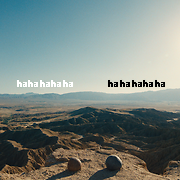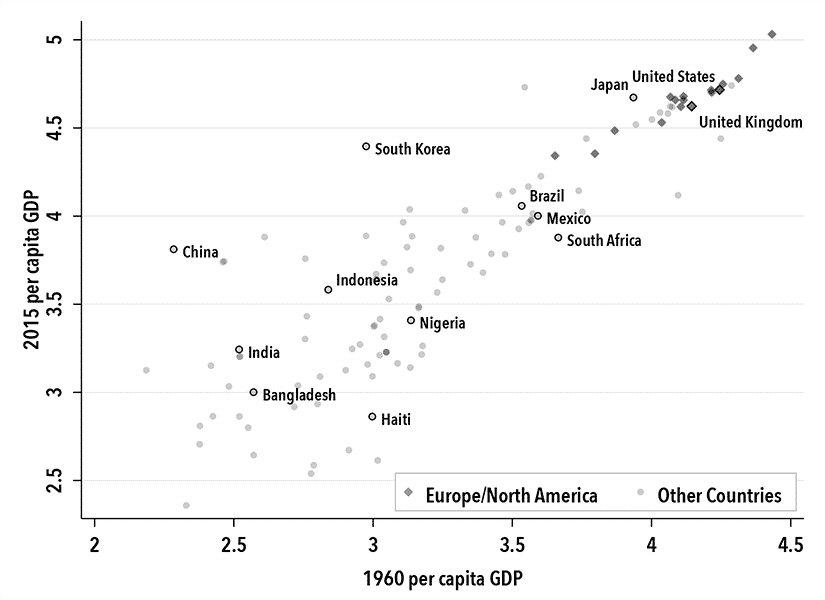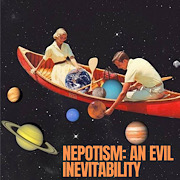|
 https://redsails.org/flight-from-history/
|
|
|
|

|
| # ? May 9, 2024 12:02 |
|
It's nice to see other communist ex catholics in the wild. Some combination of the lord of the rings and modern irish history (and then the rest of irish history) led me to becoming the communist I am today - Irish nationalism is also a weird one I guess, as we are surrounded by it, but a lot of the people who died to make (this is a brief and imprecise reading but you got a lot of martyred communists) an irish state happen were communists. Maybe it was when I read that they tied (a badly injured but not quite hewn) James Connolly to a chair to shoot him. I dunno, it was a long time ago now. Been taking the marxist soup ever since anyway.
|
|
|
|
Its been joked that Irish nationalism is the biggest point of agreement between Catholics and communists
|
|
|
|
I always wondered why the second readings at mass were virtually always Pauline epistles until I got bored enough to read some Acts and was like “oh wow these motherfuckers kicked people out of the church for hoarding money. whoa.” hell even Peter has some cool progressive stuff in it (relatively obviously but there’s the foundation for universal reconciliation). then there’s the part in Jude where Lucifer and Michael are fighting over who gets to keep Moses’ body and it’s like oh ok this is the good poo poo
|
|
|
|
The only objective way I know to measure the quality of an intellectual is how many of their predictions come true. By that metric, the greatest thinkers of the last 200 years were Karl Marx and Nick Land.
|
|
|
|
communist catholic checking in. liberation theology for life
|
|
|
|
ToxicAcne posted:What's Vijay Prashad's beef with David Harvey about China? Harvey seems to be relatively pro-China based on what I've read on him and what he says in his podcast. He certainly seems to say that a Cold War with China would be catastrophic. quote:Since the 1950s, Marxist scholars have greatly deepened our understanding of imperialism by exploring underdevelopment and the center-periphery, or dependency relationship, in world capitalism.2 Paul Baran’s The Political Economy of Growth is one of the earliest and best analyses of how feudal, imperialist, and comprador interests, as well as other unproductive uses of economic surplus, have kept back the third world. Later writers such as Samir Amin, Andre Gunder Frank, and Immanuel Wallerstein each developed a distinct but related approach to the rise of capitalism. Instead of focusing on just Western Europe and the United States, they also explored how the global division of labor and the more general world system, or imperialist system, transferred surplus from the periphery to the center, thus creating both development and underdevelopment simultaneously.
|
|
|
|
the dot between south korea and japan has gotta be singapore it's also, in 2021, hard to imagine the optimism that flooded nigeria in '60. really happy times compared to today
|
|
|
|
Thanks for the post. It really cleared up the confusion. I guess what a guy like Chibber would argue is that the imperialist focussed perspective ignores how awful the local bourgeoisie can be. I wonder what you guys think about this? Edit: By the way what is the source for that post?
|
|
|
|
I can’t do anything about local the Chinese bourgeoisie. I can’t actually do anything about the imperialism either, but at least in theory I could
|
|
|
|
one of the bigger radios here doing a ~genocide denial~ lmao https://radiostudent.si/politika/off-komentar/kitajski-virus google translate because i'm lazy quote:In addition to the flag of Slovenia and the European Union, the NATO flag has been flying in front of the Ministry of Foreign Affairs since yesterday. No, this is not a one-day media show on the 17th anniversary of Slovenia's accession to this military alliance, but the dark blue flag will hang there 24/7, 365 days a year, as announced by Foreign Minister Anže Logar. The symbolic militarization of foreign policy, of course, serves only as another depiction of kneeling or, more modernly, Logar’s simping for the United States. The actions, which can best be described as pathetic, primarily lead the casual reader to cringe, but their consequences can be far-reaching.
|
|
|
|
Truga posted:one of the bigger radios here doing a ~genocide denial~ lmao https://radiostudent.si/politika/off-komentar/kitajski-virus this is good
|
|
|
|
if GJB catches wind of this they’re so hosed
|
|
|
|
ToxicAcne posted:Thanks for the post. It really cleared up the confusion. I guess what a guy like Chibber would argue is that the imperialist focussed perspective ignores how awful the local bourgeoisie can be. It’s from the March issue of monthly review, which also has a cool article about silicon valley and fictitious capital
|
|
|
|

|
|
|
|
He had a terrible skin condition that affects gonads in particular. They would have been sick pics, indeed.
|
|
|
|
gradenko_2000 posted:this is good yeah i was listening to it and was thinking "lol this is cspam af", luckily they put up a transcript a few days later
|
|
|
|
Either way, I don't think the US is going to be letting up any time soon and I think pretty much everything it is going to be pulled into its vortex. In comparison to the previous Cold War, where the USSR could readily be contained due to its much smaller economy, I don't think China can in any comparable sense which means everything comes down to "soft power" and "cloak and dagger" operations. It really isn't about Xinjiang itself, but a growing number of skirmishes across the globe. Nordstream 2 Donbass/Crimea Ecuadorian, and soon be Chilean/Brazilian Elections Haiti US domestic economic policy Taiwan etc There is a reason it is a common topic (to some degree) in most of Cspam threads at this point.
|
|
|
|
death of an empire baby
|
|
|
|
an empire in decay is still extremely dangerous and unpredictable in how it chooses to accomplish foreign policy goals
|
|
|
|
Dying empires didn't used to have nukes
|
|
|
|
certainly gives a new perspective to the end of history
|
|
|
|
Centrist Committee posted:certainly gives a new perspective to the end of history the extent to which "the end of history" was a threat is often understated i think
|
|
|
|
BrutalistMcDonalds posted:. the "dark" weirdos of the right are inherently suspect to the militia guys and get beat up for being effete and reading yukio mishima novels. like nick land or somebody like that. but more often, i think those guys play at being cultured, like "i'm listening to beethoven because it's 'my culture'" and play at being deep but it's part of the same decadent philistine stuff which nietzsche took a giant poo poo on
|
|
|
|
grifting idea: reprinting mao's "combatting liberalism" but it's designed to look like it was written by a loving chud.
|
|
|
|
Finicums Wake posted:this is so true lol That passage sounded shockingly modern in what it was talking about. I have to read more Gramsci. Does anyone know where to start? Edit: It describes Ben Shapiro to a T.
|
|
|
|
ToxicAcne posted:That passage sounded shockingly modern in what it was talking about. I have to read more Gramsci. prison notebooks is the main one. i have no idea whether reading it volume by volume or just reading a "selections from" collection would be better, because idk poo poo about gramsci. he seems good tho
|
|
|
|
Gene Hackman Fan posted:grifting idea: reprinting mao's "combatting liberalism" but it's designed to look like it was written by a loving chud. 
|
|
|
|
lmao well done
|
|
|
|
|
|
|
|
write it as May Z. Dong and add a picture of a blonde 20-something girl congrats, you got yourself a hit
|
|
|
|
lol
|
|
|
|
|
|
|
|
|
|
|
|
hrm. i like it, but the author name needs to be changed to sound more white. something like michael alan o'leary
|
|
|
|
having way too much fun with this now
|
|
|
|
Comrade Koba posted:having way too much fun with this now
|
|
|
|
the real thing that makes it a hit with chuds is that its like three pages max
|
|
|
|
|
drinking the last of the milk and putting the jug back in the fridge is another form of liberalism inviting your in-laws over without talking it over with your husband first? you guessed it,
|
|
|
|

|
| # ? May 9, 2024 12:02 |
|
Comrade Koba posted:having way too much fun with this now amazing
|
|
|




































